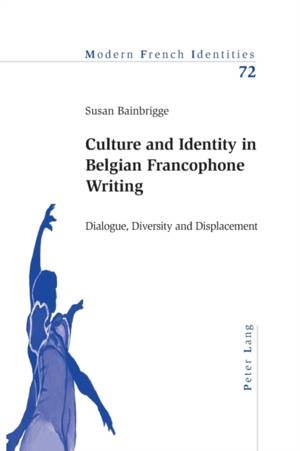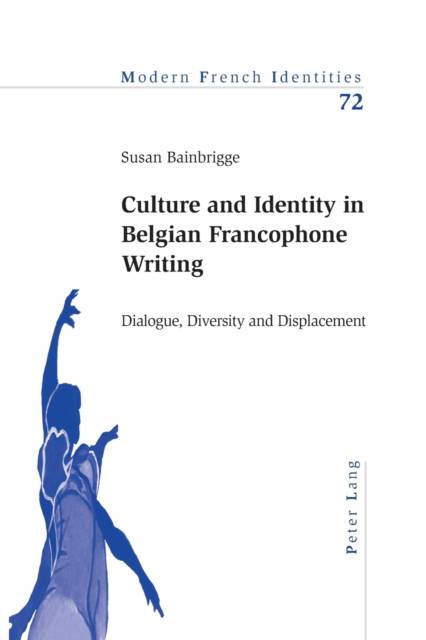
- Afhalen na 1 uur in een winkel met voorraad
- Gratis thuislevering in België vanaf € 30
- Ruim aanbod met 7 miljoen producten
- Afhalen na 1 uur in een winkel met voorraad
- Gratis thuislevering in België vanaf € 30
- Ruim aanbod met 7 miljoen producten
Zoeken
Culture and Identity in Belgian Francophone Writing
Dialogue, Diversity and Displacement
Susan Bainbrigge
€ 75,45
+ 150 punten
Omschrijving
Few full-length studies exist in English on French-speaking authors from Belgium. What, if any, are the particular features of francophone Belgian writing? This book explores questions of cultural and literary identity, and offers an overview of currents in critical debate regarding the place of francophone Belgian writing and its relationship to its larger neighbour, but also engages with broader questions concerning the classification of 'francophone' literature.
The study brings together well-known and less well-known modern and contemporary writers (Suzanne Lilar, Neel Doff, Dominique Rolin, Jacqueline Harpman, Françoise Mallet-Joris, Jean Muno, Nicole Malinconi, and Amélie Nothomb) whose works share a number of recurring themes and features, notably a preoccupation with questions of identity and alterity. Overall, the study highlights the diverse ways in which these questions of cultural identity and alterity emerge as a dominant theme throughout the corpus, viewed through a series of literary and cultural frameworks which bring together perspectives both local and global.
The study brings together well-known and less well-known modern and contemporary writers (Suzanne Lilar, Neel Doff, Dominique Rolin, Jacqueline Harpman, Françoise Mallet-Joris, Jean Muno, Nicole Malinconi, and Amélie Nothomb) whose works share a number of recurring themes and features, notably a preoccupation with questions of identity and alterity. Overall, the study highlights the diverse ways in which these questions of cultural identity and alterity emerge as a dominant theme throughout the corpus, viewed through a series of literary and cultural frameworks which bring together perspectives both local and global.
Specificaties
Betrokkenen
- Auteur(s):
- Uitgeverij:
Inhoud
- Aantal bladzijden:
- 238
- Taal:
- Engels
- Reeks:
- Reeksnummer:
- nr. 72
Eigenschappen
- Productcode (EAN):
- 9783039113828
- Verschijningsdatum:
- 22/12/2008
- Uitvoering:
- Paperback
- Formaat:
- Trade paperback (VS)
- Afmetingen:
- 152 mm x 229 mm
- Gewicht:
- 322 g

Alleen bij Standaard Boekhandel
+ 150 punten op je klantenkaart van Standaard Boekhandel
Beoordelingen
We publiceren alleen reviews die voldoen aan de voorwaarden voor reviews. Bekijk onze voorwaarden voor reviews.











